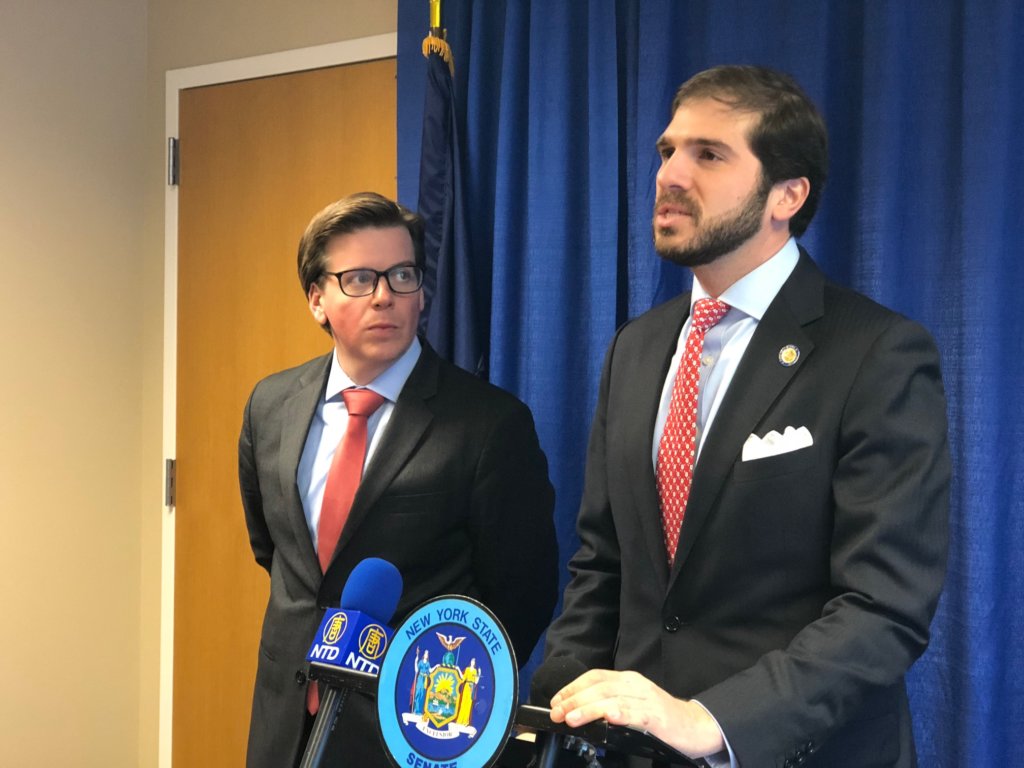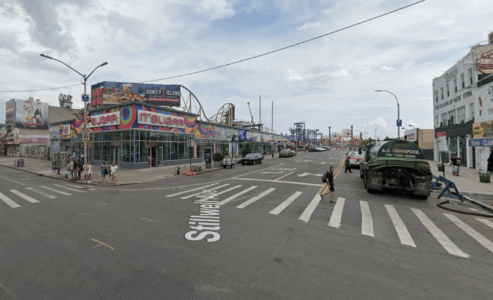It will soon be a crime in New York State to post naked pictures of an ex-lover on the Internet without their permission.
State Sen. Andrew Gounardes was a co-sponsor of the bill that passed unanimously in the State Senate on Feb. 28 to outlaw what’s known as “revenge porn.” The State Assembly approved a similar bill.
Gov. Andrew Cuomo has already announced that he intends to sign it.
“Revenge porn is a form of sexual assault in the 21st Century,” said Gounardes, a Democrat who represents several Southwest Brooklyn neighborhoods, including Bay Ridge, Dyker Heights, Bensonhurst, Gravesend, Marine Park and Gerritsen Beach.
Revenge porn takes place when a person posts revealing photos or videos of a victim on the Internet, or threatens to disseminate the images, for the purpose of humiliating the victim.
In many cases, the person posting the images is a former romantic partner of the victim and the photos were taken during intimate moments in the relationship, according to experts at the Data and Society Research Institute, who said as many as 10 million Americans have been revenge porn victims.
Under the bill, offenders could face up to a year in prison. The bill also grants judges the authority to order websites and social media sites to take down the embarrassing images. In addition, victims would be able to sue offenders in civil court and seek damages.
New York would be the 42nd state in the U.S. to criminalize revenge porn.
State Sen. Monica Martinez, a Democrat who represents parts of Suffolk County, was the main sponsor. Assemblymember Edward Braunstein, a Democrat representing Bayside, Queens, was the assembly sponsor.
“It has never been easier to share private images and make them widely available without consent,” Senate Majority Leader Andrea Stewart-Cousins said in a statement. “That is why the Senate Majority is taking action, together with our Assembly Majority colleagues, to help combat so-called revenge porn.”
Gounardes pointed to the devastating effect revenge porn can have on victims as a major reason for his support of the legislation.
“Private images released to the world by the click of a button and without consent can result in irreversible damage to a person’s life, family, and career. This important piece of legislation gives law enforcement the tools they need to further protect innocent people being exploited and victims the opportunity to seek justice. We must ensure that those guilty of these despicable crimes face appropriate punishment,” Gounardes said.
Young people between the ages of 15 and 29 are more likely to be revenge porn victims than older Americans, according to the Data and Society Research Institute, which estimated that four percent of Internet users have been targeted.
The effect revenge porn can have on a victim can be devastating, according to advocates for victims. In addition to the shame and humiliation, victims have also suffered job losses when their bosses have seen the images, advocates said.Carrie Goldberg, an advisory board member of the Cyber Civil Rights Initiative, pushed for the legislation and said she was a victim herself.
“I started my firm in 2014 to fight for victims of sexual assault and stalking because I couldn’t find a lawyer when I was under attack by a vengeful ex threatening to spread pictures of me,” she said. “And over the last five years, hundreds of New Yorkers have sought our help when they suffered the humiliation and backlash from their most private moments being posted on the Internet and social media for the world to see. Some lost jobs; others were blackmailed and stalked by strangers.”
The bill is an important step, Goldberg said, because it “puts sexual privacy where it belongs – in the hands of New Yorkers” and allows victims to “seek criminal redress, a restraining order, and justice from our civil courts.”

 Sunset Park residents look to form new mural at 54th Street
Sunset Park residents look to form new mural at 54th Street  Man charged with attempted kidnapping after allegedly grabbing six-year-old in Coney Island
Man charged with attempted kidnapping after allegedly grabbing six-year-old in Coney Island